With the collapse of the INF Treaty and unravelling of the arms control system developed in the late 20thcentury, European security faces its most profound challenges in three decades. Europe looks set to find itself in the middle of a new arms race. Moreover, the existing framework for strategic stability, which has been the cornerstone of international security, appears increasingly outdated and may no longer be able to provide for mutual deterrence amid growing strategic competition.
These dangerous developments demand action. Yet tensions between the major geopolitical rivals intensify, generate uncertainty, and aggravate the security dilemma. Rivalry has eroded political and military-to-military communication channels, while established specialist conferences have increasingly succumbed to propaganda and counter-propaganda, diminishing their value as platforms for open dialogue. Even among allies, unilateral actions often prevail in place of cooperation as states and societies face a growing range of security threats.
Despite this, we cannot simply wait until everyone agrees that the situation is ripe for a serious conversation about new security arrangements in Europe. The cost of waiting will likely only be another crisis and we will have no mechanisms in place to manage it. Stakeholders in European security have a fundamental joint interest in launching a discussion about Europe’s basic security safeguards.
In today’s world, this discussion needs to go beyond hard security issues only and deal with broader political, economic, and societal trends. We need agreed rules and norms in non-military areas as well, which will ensure overall stability. Moreover, a number of recent and upcoming elections, including in Ukraine, Armenia, and Moldova, might facilitate new openings for trust-building and fresh solutions to security problems.
The Minsk Dialogue Forum provides a unique platform where relevant stakeholders can engage in such discussions and seek, at the very least, to agree on minimum standards of security for all. The event will gather high-profile representatives and leading experts from the EU, Russia, USA, China, and east European and south Caucasian nations.
This year’s forum will focus on the following topics:
- Strategic stability and arms control: What confidence- and security-building measures are appropriate? What innovative approaches can work?
- Propaganda and counter-propaganda: Do we still have high-quality journalism and can we agree on some common journalistic standards?
- Eastern Partnership at 10: ways forward to enhance soft security and resilience.
- China as a strategic actor in Eastern Europe and BRI’s connectivity potential.
- Can Belarus become a success story of East European security?
- Donbas and Transnistria after the elections in Ukraine and Moldova.
- Where is the Eurasian Economic Union heading?
- Transatlantic cooperation amid growing strategic competition.
ABOUT THE MINSK DIALOGUE
The Minsk Dialogue was launched as a Track-1.5 initiative at the beginning of 2015. Its mission is to offer an open and geopolitically unbiased platform for research and discussion on international affairs and security in Eastern Europe. Regular Minsk Dialogue events gather international experts, as well as high-level officials and diplomats.
The Minsk Dialogue’s team and its expert network produce analytical reports, policy papers, commentaries, backgrounders, and conference non-papers, which are widely distributed among the relevant international stakeholders. All analytical publications and conference materials can be accessed at www.minskdialogue.by.
The inaugural Minsk Dialogue Forum took place in May 2018. It gathered over 500 experts and diplomats from 59 countries, as well the OSCE Secretary General and high-level representatives of NATO, the Collective Security Treaty Organisation, the Council of Europe, and the Council of the Baltic Sea States. The Forum’s partners included the Konrad Adenauer Foundation, RAND Corporation, European Leadership Network, Austro-French Centre for Rapprochement in Europe, Friedrich Ebert Foundation, the European Endowment for Democracy, the University of Kent, the University of Cambridge, and others.
After the success of the inaugural Minsk Dialogue Forum, this year’s forum is expected to gather high-level representatives of governments and international organisations, as well as leading international experts on European security.
Forum partners
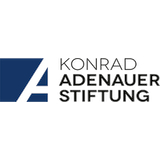

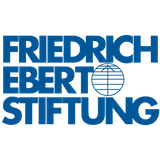
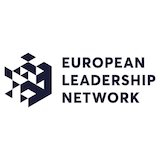
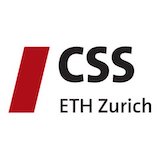
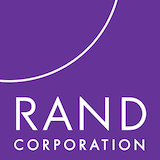


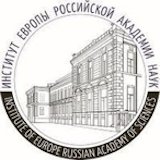
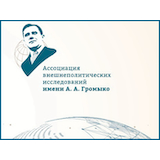

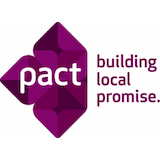
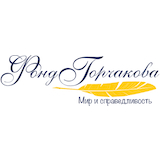
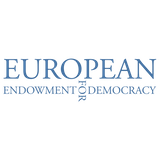
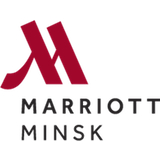

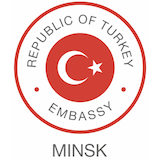
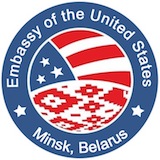
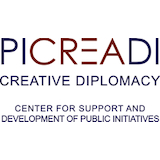
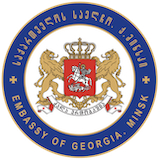
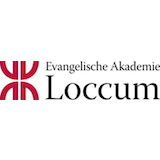
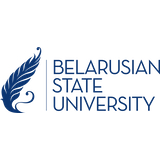
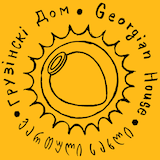

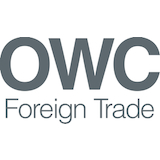
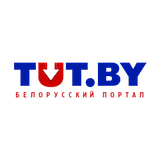
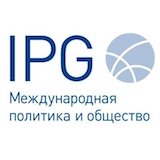
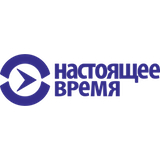
Agenda
7 October (Monday)
|
9.30-10.30 |
Morning media briefing by the organisers of the Forum (presentation of the Forum report on the state of East European security in 2019) Yauheni Preiherman Founder and Director, Minsk Dialogue Council on International Relations Jakob Wöllenstein Director Country Office Belarus, Konrad-Adenauer-Stiftung, Germany Elena Korosteleva Professor of International Politics, Director of the Global Europe Centre, University of Kent, UK Dzianis Melyantsou Programme Coordinator, Minsk Dialogue Council on International Relations |
|
10.30-12.00 |
Partner session Young leaders on the present and future of European security In partnership with the Younger Generation Network on Euro-Atlantic Security (YGLN) and the GCRF COMPASS Project Moderator Zachary Paikin Researcher, University of Kent; senior editor, Global Brief, Canada Comments by: Jacqueline Perkins Ambassador Extraordinary and Plenipotentiary of the United Kingdom of Great Britain and Northern Ireland to the Republic of Belarus Dmitry Mezentsev Ambassador Extraordinary and Plenipotentiary of the Russian Federation to the Republic of Belarus Dirk Schuebel Head of Delegation, Ambassador, Delegation of the European Union to Belarus Valery Varanetsky Chairman, Standing Committee on International Affairs, House of Representatives of the National Assembly, Belarus |
|
12.30-13.00 |
Welcome remarks Yauheni Preiherman Founder and Director, Minsk Dialogue Council on International Relations Jakob Wöllenstein Director Country Office Belarus, Konrad-Adenauer-Stiftung, Germany Vladimir Makei Minister of Foreign Affairs of the Republic of Belarus |
|
13.00-14.30 |
Plenary session European security: can we stop further confrontation? Viacheslav Nikonov Chairman, Committee on Education and Science, State Duma of the Federal Assembly of the Russian Federation Dirk Wiese Member of the Bundestag, Federal GovernmentCoordinator for Intersocietal Cooperation with Russia, Central Asia and the Eastern Partnership Countries, Germany István Balogh State Secretary, Ministry of Foreign Affairs and Trade of Hungary Alexis Lamek Deputy Director General for Political Affairs and Security, Ministry of Foreign Affairs of France Brad Freden Eastern Europe Office Director, Department of State, USA Huseyn Huseynov Director, Analysis and Strategic Studies Department, Ministry of Foreign Affairs of Azerbaijan Moderator Elena Korosteleva Professor of International Politics, Director of the Global Europe Centre, University of Kent, UK |
|
14.30-15.15 |
Light lunch |
|
15.15-15.30 |
Institutional perspective Can we revive cooperative security? James Mackey Head of Euro-Atlantic and Global Partnership, IS PASP, NATO Viktor Zagrekov Deputy head of the Political Cooperation Department, CSTO |
|
15.30-17.00 |
Plenary session Propaganda and counterpropaganda: Can we agree on a basic code of conduct for journalists? Judy Dempsey Nonresident Senior Associate, Carnegie Europe and Editor in Chief, Strategic Europe, Germany Alexei Venediktov Editor-in-chief, Ekho Moskvy, Russia Volodymir Fesenko Chairman of Board, Penta Centre, Ukraine Luzia Ruth Tschirky Correspondent, Swiss Broadcasting Agency (SRF), Switzerland Moderator Aleh Makarau Director, Belarusian Institute for Strategic Research, Belarus |
|
17.00-17.30 |
Coffee break |
|
17.30-17.45 |
Institutional perspective Can we revive cooperative security? Viktor Zagrekov Deputy head of the Political Cooperation Department, CSTO |
|
17.45-19.15 |
Plenary session Arms control and the future of strategic stability Ben Hodges Pershing Chair in Strategic Studies, Center for European Policy Analysis (CEPA); former Commanding General of US Army Europe Feodor Voitolovsky Director, Primakov National Research Institute of World Economy and International Relations (IMEMO), Russian Academy of Sciences, Russia Roderich Kiesewetter Member of the Bundestag, Germany Anna Maria Dyner Head of the Eastern Europe Programme, Polish Institute for International Affairs (PISM), Poland Mustafa Kibaroğlu Professor, Dean, Faculty of Economics, Administrative and Social Sciences, MEF University; Director, MEF Strategy, Center for International Security Studies and Strategic Research, Turkey Branimir Filipović Acting Assistant Minister of Foreign Affairs for Security Policy, Serbia Moderator Ulrike Franke Policy Fellow, European Council on Foreign Relations, Germany |
|
19.15-20.30 |
Dinner |
|
20.30 – 22.00 |
Night owl sessions (under the Chatham House Rule) Session 1. Donbas: New light at the end of the tunnel? Hennadiy Maksak Head, Foreign Policy Council Ukrainian Prism, Ukraine Sergey Markedonov Leading Researcher, Institute of International Studies at MGIMO University; Expert, Russian International Affairs Council, Russia Alexander Vershbow Distinguished Fellow, Scowcroft Center for Strategy and Security Atlantic Council; former NATO Deputy Secretary General, USA Rein Oidekivi Research Fellow, International Centre for Defense and Security, Estonia Moderator Jakob Wöllenstein Director Country Office Belarus, Konrad-Adenauer-Stiftung, Germany
Session 2. Central Asia: Security and power transition challenges and implications for Wider Eurasia In partnership with GCRF Compass Project Fariz Ismailzade Vice-Rector, ADA University, Azerbaijan Aliaksandr Baichorau Professor, Belarusian State University, Belarus Nilufar Rakhmatullaeva Researcher, University of World Economy and Diplomacy, Uzbekistan Kholahmad Samiev Professor, Tajik National University, Tajikistan Benno Zogg Senior Researcher, Centre for Security Studies, ETH Zurich, Switzerland Moderator Roza Turarbekova Associate professor, Belarusian State University, Belarus
Session 3. The EU between internal reforms and external challenges: The (un)making of a strategic actor? In partnership with the Austro-French Centre for Rapprochement in Europe Judy Dempsey Nonresident Senior Associate, Carnegie Europe and Editor in Chief, Strategic Europe, Germany Vygaudas Ušackas Member of the Board, Avia Solutions Group; former Minister of Foreign Affairs of Lithuania Lazar Comanescu Senior advisor (foreign relations) to the President of the Romanian Chamber of Commerce; Board member; New Strategy Centre; former Minister of Foreign Affairs of Romania Paul Révay Member of the Board of Trustees, “Friends of Europe” (Belgium), France Moderator Florent Marciacq Deputy Secretary General, Austro-French Centre for Rapprochement in Europe, Austria-France |
8 October (Tuesday)
|
9.00-9.30 |
Conversation US policy towards Eastern Europe Glen Howard President, Jamestown Foundation, USA Thomas Graham Managing Director, Kissinger Associates; Distinguished Fellow, Council on Foreign Relations, USA Moderator Artsiom Shraibman Political analyst, Belarus |
|
10.00-12.00 |
High-level plenary session In search of an agenda for peace and cooperation in Europe Alexander Lukashenko President of the Republic of Belarus Giorgi Margvelashvili President of Georgia (2013-2018), Georgia Stjepan Mesic President of Croatia (2000-2010), Croatia Baroness Catherine Ashton Chair of Global Europe, Woodrow Wilson Center; former High Representative of the European Union for Foreign Affairs and Security Policy and First Vice President of the European Commission, UK Alexei Pushkov Chairman, Interim Commission on Information Policy and Cooperation with the Media, Federation Council of the Federal Assembly of the Russian Federation Alexander Vershbow Distinguished Fellow, Scowcroft Center for Strategy and Security Atlantic Council; former NATO Deputy Secretary General, USA Moderator Yauheni Preiherman Founder and Director, Minsk Dialogue Council on International Relations |
|
12.45-13.30 |
Lunch |
|
13.30-15.00 |
Breakout sessions Session 1. Reducing military risk in Eastern Europe In partnership with the European Leadership Network Ben Hodges Pershing Chair in Strategic Studies, Center for European Policy Analysis (CEPA); former Commanding General of US Army Europe Feodor Voitolovsky Director, Primakov National Research Institute of World Economy and International Relations (IMEMO), Russian Academy of Sciences, Russia Anna Maria Dyner Head of the Eastern Europe Programme, Polish Institute for International Affairs (PISM), Poland Ian Anthony Director, European Security Programme, SIPRI, Sweden Moderator Sir Adam Thomson Director, European Leadership Network; former UK Permanent Representative to NATO, UK
Session 2. How helpful is the Cold War experience of rapprochement for European security today? In partnership with the Institute of Europe of the Russian Academy of Sciences and the Gromyko Association of Foreign Policy Studies Ivan Antonovich Former Minister of Foreign Affairs of the Republic of Belarus Vladimir Baranovsky Academician, Russian Academy of Sciences; member of the Directorate, Primakov National Research Institute of World Economy and International Relations (IMEMO), Russia Pyotr Bryhadzin Director, Business Institute, Belarusian State University; former Minister of Education of the Republic of Belarus Thomas Graham Managing Director, Kissinger Associates; Distinguished Fellow, Council on Foreign Relations, USA Heinz Gärtner International Institute for Peace (IIP) and University of Vienna, Chair of the Advisory Committee for Strategy and Security Policy of the Scientific Commission at the Austrian Armed Forces (BMLV), Austria Vladimir Senko Former Minister of Foreign Affairs of the Republic of Belarus Sergey Rakhmanov Chairman, Standing Committee on International Affairs and National Security, Council of the Republic of the National Assembly, Belarus Sergey Rogov Academic Director, Institute for the US and Canadian Studies, Russian Academy of Sciences, Russia Vladimir Senko Former Minister of Foreign Affairs of the Republic of Belarus Viacheslav Sutyrin Executive Director, Gromyko Association of Foreign Policy Studies, Russia Gabriele Woidelko Head of Department of History and Politics, Körber-Stiftung, Germany Co-Moderators Alexey Gromyko Director, Institute of Europe, Russian Academy of Sciences, Russia Viktar Shadurski Professor, Dean, Faculty of International Relations, Belarusian State University, Belarus
Session 3. In search of an inclusive regional order in post-Soviet Europe and Eurasia In partnership with Friedrich-Ebert-Stiftung and RAND Corporation Introductory remarks Reinhard Krumm Head of Office, FES Regional Office for Cooperation and Peace in Europe, Germany Samuel Charap Senior Political Scientist, RAND Corporation, USA Olesya Vartanyan Analyst, International Crisis Group, Georgia Sergey Afontsev Deputy Director, Primakov National Research Institute of World Economy and International Relations (IMEMO), Russian Academy of Sciences; Professor, Moscow State Institute of International Relations (MGIMO), Russia Jeremy Shapiro Research Director, European Council on Foreign Relations, USA Moderator Alexandra Dienes Research Associate, FES Regional Office for Cooperation and Peace in Europe, Germany |
|
15.00-15.30 |
Coffee break |
|
15.30-17.00 |
Plenary session EU – Eurasian Economic Union – Belt and Road initiative: Any real areas of mutual interest? Lord Teverson Member of the House of Lords, UK Sun Li Deputy Director, Institute of Russian, Eastern European and Central Asian Studies, Chinese Academy of Social Sciences, China Alexey Gromyko Director, Institute of Europe, Russian Academy of Sciences, Russia Tony van der Togt Senior Research Fellow, Clingendael Netherlands Institute of International Relations, Netherlands Suren Sargsyan President and Founder, Armenian Center for American Studies, Armenia Eugene Chausovsky Senior Eurasia Analyst, Stratfor, USA Moderator Ulf Schneider CEO & President, SCHNEIDER GROUP & OWC Foreign Trade Publishing House, Germany |
|
17.05-17.10 |
South Asian perspective Can we revive cooperative security? Sujan R. Chinoy Director General, Institute for Defence Studies and Analyses, India |
|
17.10-17.35 |
Coffee break |
|
17.35-17.50 |
Institutional perspective Can we revive cooperative security? Marcel Pesko Director, OSCE Conflict Prevention Centre |
|
17.50-19.20 |
Closing plenary sessionEuropean security: New ideas for an uncertain future Raynell Andreychuk Former Chair, Standing Committee on Foreign Affairs and International Trade, The Senate of Canada Alexander Iskandaryan Director, Caucasus Institute, Armenia Oleksandr Chalyi President, Grant Thornton Ukraine; member, OSCE Panel of Eminent Persons, Ukraine Maciej Pisarski Director, Department of Foreign Policy Strategy, Ministry of Foreign Affairs, Poland Andrey Sushentsov Director, Institute of International Studies at MGIMO University; Programme Director, Valdai Discussion Club, Russia Samuel Charap Senior Political Scientist, RAND Corporation, USA Moderator Dzianis Melyantsou Programme Coordinator, Minsk Dialogue Council on International Relations |
|
19.20-19.30 |
Closing remarks |
|
20.00-22.00 |
GCRF COMPASS reception Welcome address Lord Teverson Member of the House of Lords, UK Elena Korosteleva Professor of International Politics, Director of the Global Europe Centre, University of Kent, UK
|
9 October (Wednesday)
|
8.30-10.00 |
Working breakfasts WB 1. Moldova: What’s next? Vladislav Kulminski Political Adviser to the Prime Minister of Moldova Vladimir Socor Senior Fellow, Jamestown Foundation, USA Moderator Timur Onica Senior Programme Manager, European Endowment for Democracy WB 2. Meeting Russia In partnership with the Centre for Support and Development of Public Initiatives “Creative Diplomacy” Ulrike Reisner Political Analyst, Lecturer, Journalist, Austria Ivan Kiseev Executive Director, Center for Support and Development of Public Initiatives “Creative Diplomacy”, Russia Moderator Natalia Burlinova President, Center for Support and Development of Public Initiatives “Creative Diplomacy”, Russia |
|
10.00-12.00 |
Partner session In search of a stable regional order for Eastern Europe and South Caucasus In partnership with Protestant Academy Loccum |
